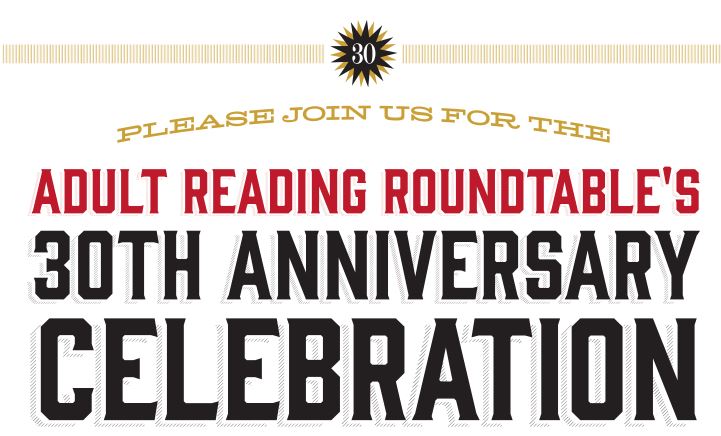You know the drill on Library Reads by now. Click here for past lists. Lots of big names on this one.
Smoke Gets in Your Eyes:
And Other Lessons from
the Crematory
by Caitlin Doughty
Published: 9/15/2014
by W.W. Norton & Company
ISBN: 9780393240238
“Part memoir, part exposé of the death industry, and part instruction manual for aspiring morticians. First-time author Doughty has written an attention-grabbing book that is sure to start some provocative discussions. Fans of Mary Roach’s Stiff and anyone who enjoys an honest, well-written autobiography will appreciate this quirky story.”
Patty Falconer, Hampstead Public Library, Hampstead, NH
Station Eleven: A Novel
by Emily St. John Mandel
Published: 9/9/2014 by Knopf
ISBN: 9780385353304
“An actor playing King Lear dies onstage just before a cataclysmic event changes the future of everyone on Earth. What will be valued and what will be discarded? Will art have a place in a world that has lost so much? What will make life worth living? These are just some of the issues explored in this beautifully written dystopian novel. Recommended for fans of David Mitchell, John Scalzi and Kate Atkinson.”
Janet Lockhart, Wake County Public Libraries, Cary, NC
The Secret Place
by Tana French
Published: 9/2/2014 by Viking Adult
ISBN: 9780670026326
“French has broken my heart yet again with her fifth novel, which examines the ways in which teenagers and adults can be wily, calculating, and backstabbing, even with their friends. The tension-filled flashback narratives, relating to a murder investigation in suburban Dublin, will keep you turning pages late into the night.”
Alison McCarty, Nassau County Public Library System, Callahan, FL
Rooms: A Novel
by Lauren Oliver
Published: 9/23/2014 by Ecco
ISBN: 9780062223197
“A family comes to terms with their estranged father’s death in Oliver’s first novel for adults. Told from the perspective of two ghosts living in the old house, this unique story weaves characters and explores their various past connections. Great book!”
Rachel Fewell, Denver Public Library, Denver, CO
The Children Act
by Ian McEwan
Published: 9/9/2014 by Nan A. Talese
ISBN: 9780385539708
“Judge Fiona Maye is at a difficult point in her marriage. Taking refuge in addressing other people’s problems in family court, Fiona extends herself more than usual, meeting a boy whose future is in her hands. McEwan is a masterful observer of human distress. With a simple story and flawed, genuine characters, this novel is poignant and insightful.”
Jennifer Alexander, St. Louis County Library, St. Louis, MO
The Distance: A Thriller
by Helen Giltrow
Published: 9/9/2014 by Doubleday
ISBN: 9780385536998
“Imagine a modern-day Robin Hood who deals not in money, but identity. Karla, the protagonist of The Distance, is a tech guru with a conscience, and the security of several nations dependent on her. This nuanced book kept me on the edge of my seat. I cannot wait until the next one comes out.”
Cathy Scheib, Indianapolis Public Library, Indianapolis, IN
Horrorstor: A Novel
by Grady Hendrix
Published: 9/23/2014 by Quirk Books
ISBN: 9781594745263
“You know how some horror movies would work better as novels? Horrorstor is that book, perfectly capturing everything that is terrific about the horror genre. In its catalog-style pages, you’ll find a hefty dose of satire, as a Scandinavian furniture store is transformed overnight into a prison. With characters that you’re rooting for and terror that creeps up on you, Horrorstor will keep you up all night in the best possible way.”
Donna Matturri, Pickerington Public Library, Pickerington, OH
The Paying Guests
by Sarah Waters
Published: 9/16/2014 by Riverhead
ISBN: 9781594633119
“You can almost bet that a situation with long-term guests–paying or not–is not going to turn out well. This novel by Waters, who many know from her earlier booksTipping the Velvet and The Little Stranger, will keep you turning the page to see just how tense things can get, and how far fear and passion can push someone.”
Elizabeth Angelastro, Manlius Library, Manlius, NY
The Witch with No Name
by Kim Harrison
Published: 9/9/2014 by Harper Voyager
ISBN: 9780061957956
“In this book, Harrison ends her long-running Hollows series, featuring witch Rachel Morgan, vampire Ivy, and pixy Jenks. Rachel’s come a long way; now, she and her friends attempt the impossible and face their toughest battle yet. Harrison skillfully wraps up many plot points, leaving readers sad that the series is over but satisfied by its ending. Fans will surely cheer Rachel on and shed a tear or two.”
Ilene Lefkowitz, Denville Public Library, Denville, NJ
Season of Storms
by Susanna Kearsley
Published: 9/2/2014 by Sourcebooks Landmark
ISBN: 9781402258732
“Once again, Kearsley introduces you to a cast of characters who will quickly hold a special place in your heart. Celia and Alex mirror lovers from decades past, sharing similar secrets and passions. Flashbacks are woven seamlessly into the storyline, and the strong family component is handled beautifully, with surprising twists and turns.”
Marianne Colton, Lockport Public Library, Lockport, NY



























